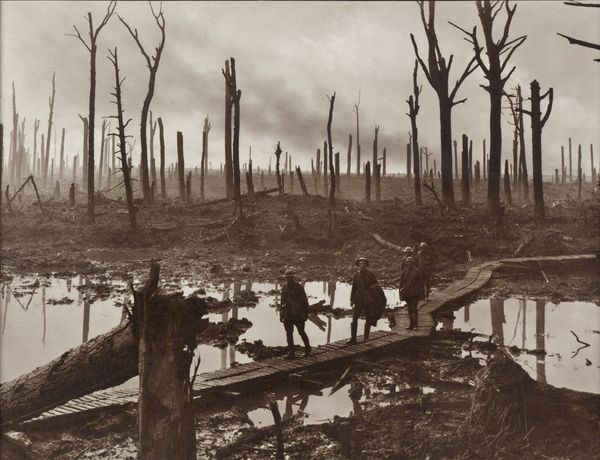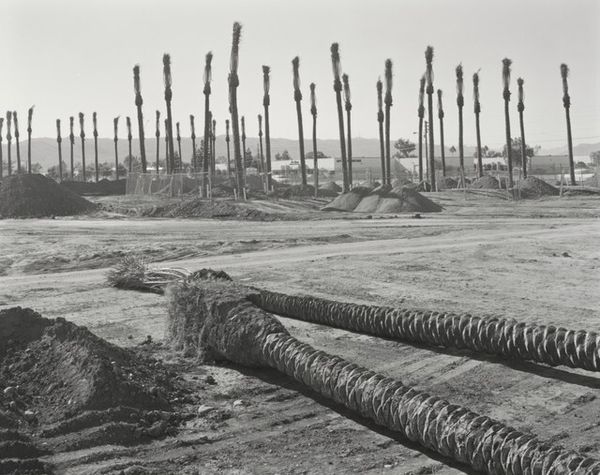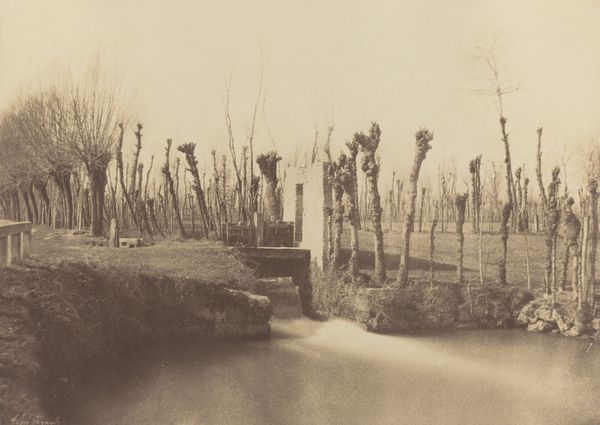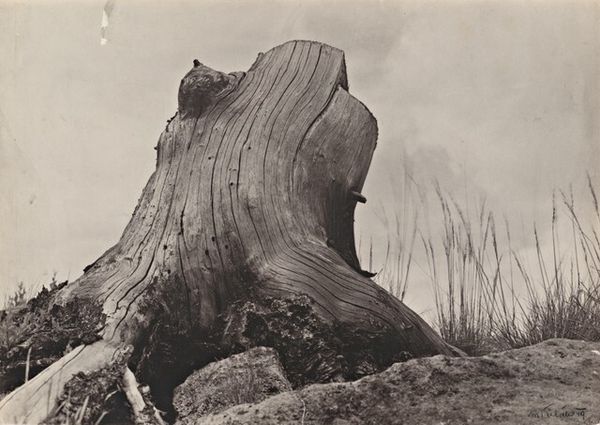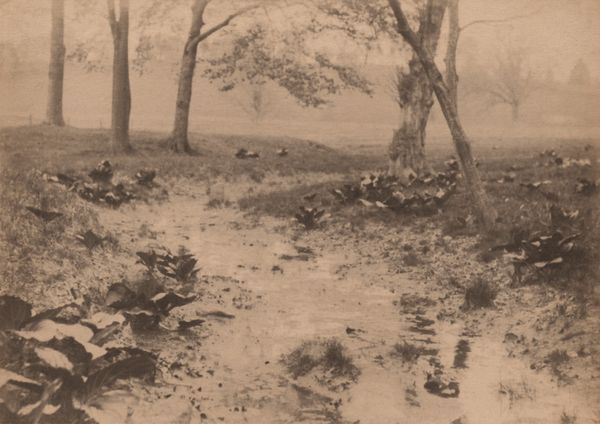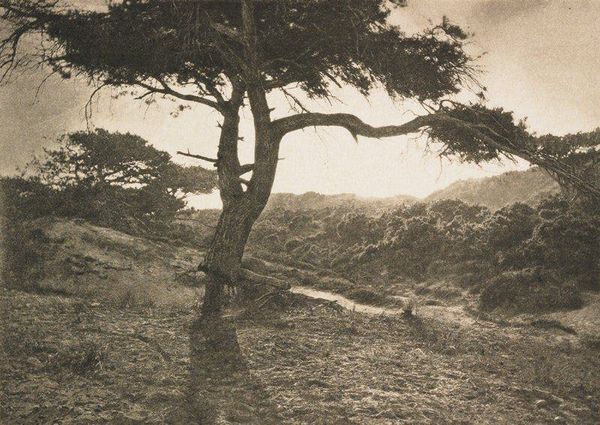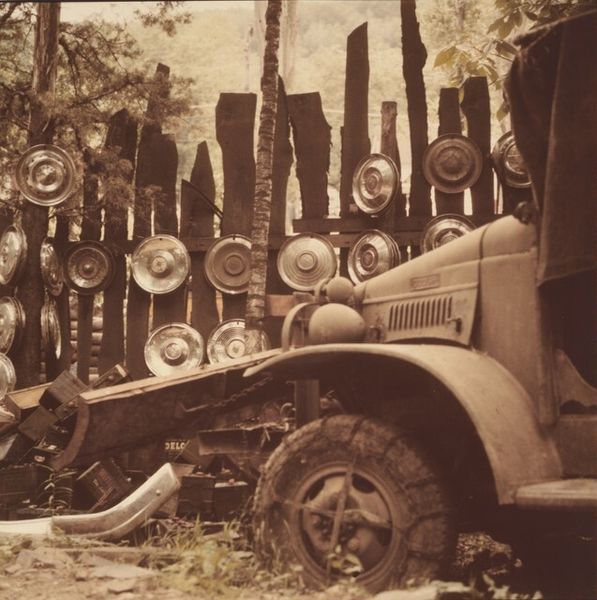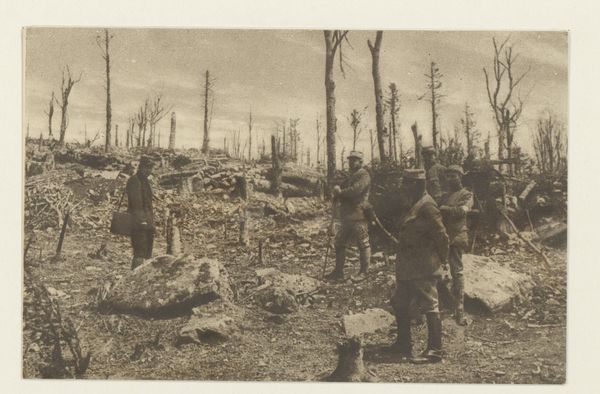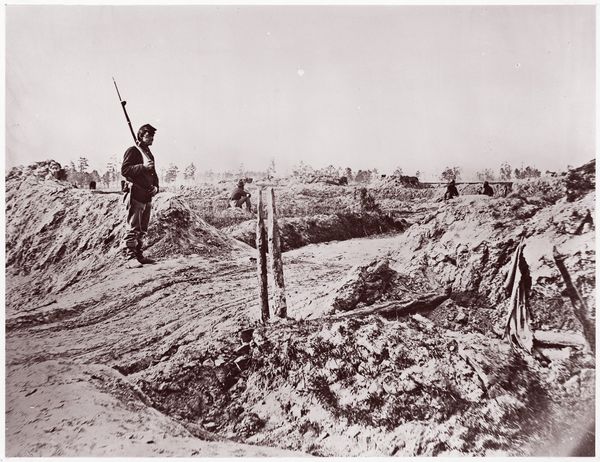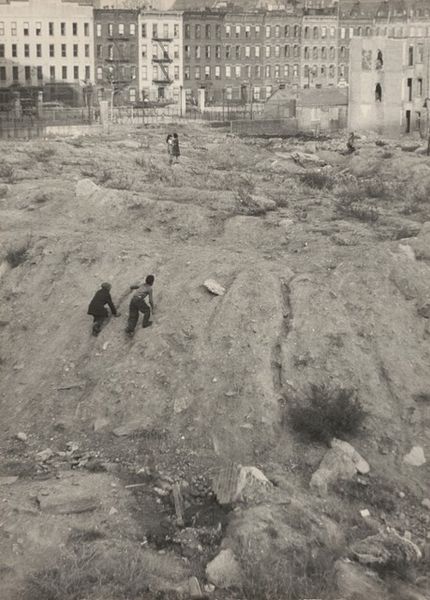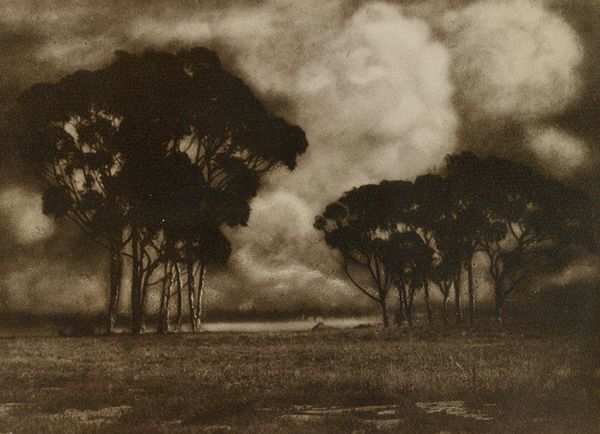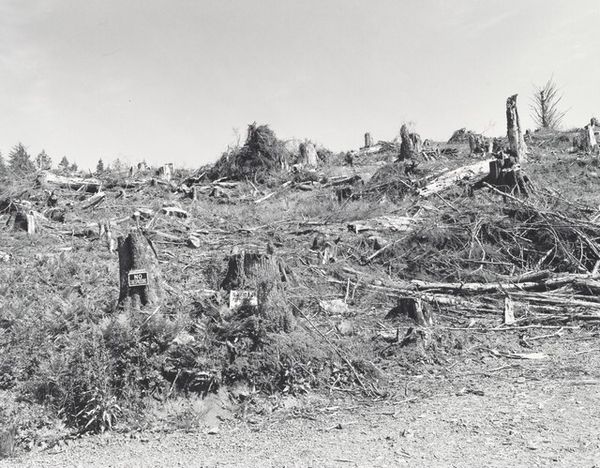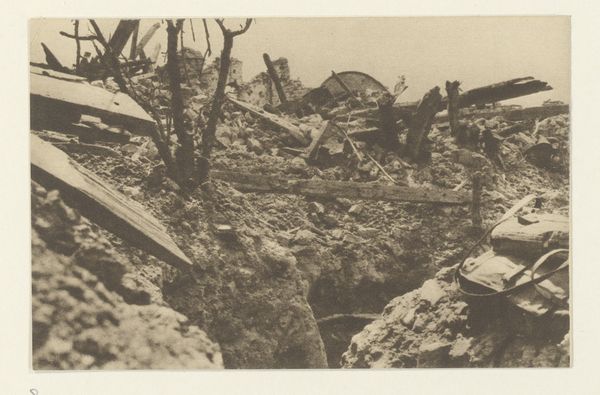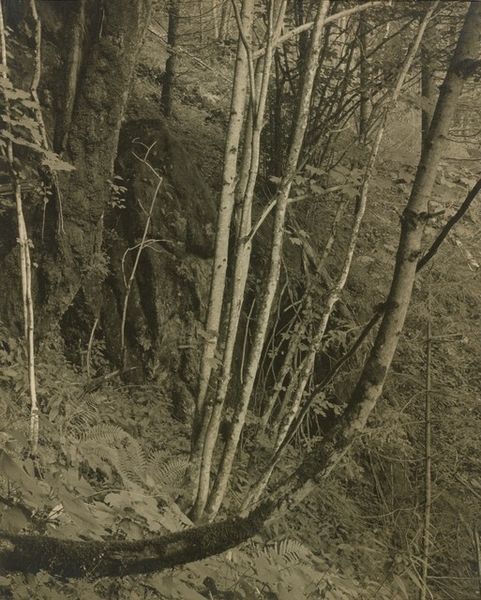
photography, gelatin-silver-print
#
black and white photography
#
pictorialism
#
landscape
#
photography
#
expressionism
#
gelatin-silver-print
#
monochrome photography
#
history-painting
#
skyscape
#
modernism
#
realism
#
statue
#
monochrome
Copyright: Frank Hurley,Fair Use
Curator: Immediately, I am struck by a feeling of profound desolation and loss. The sepia tones amplify the sense of the past, hinting at trauma. Editor: We're looking at Frank Hurley's "Sentinel Stations," a gelatin silver print made in 1917. It captures a soldier amidst a ravaged landscape during World War I. Curator: "Sentinel Stations" is an interesting title considering what it depicts. It makes me wonder about Hurley's intention—to commemorate and make us think of resilience, the lasting impact of conflict? Editor: Absolutely. Hurley was actually an official photographer documenting the war. What interests me, thinking materially, are those skeletal trees. Notice how Hurley frames them— they’re not just background elements, but monumental, like broken sculptures crafted by the forces of war. Each mark on their charred remains speak of material degradation of conflict and the human toll required for industrial production. Curator: I agree. Hurley does more than document, his images aim to evoke an emotional response. By employing techniques characteristic of Pictorialism, softening the focus and manipulating the print, he transforms a documentary photograph into a powerful artistic statement about the barbarity of war. Editor: And that barbarity is rendered tangible. The mud, the shattered trees, the implied explosions – the labour and resources sunk into destruction rather than construction. Curator: It serves as a grim history lesson, the landscape itself scarred by political ideologies, the ambitions and failures of governments, all distilled into this stark image of a devastated environment. It is hard to turn away from its raw emotional impact and its sobering truth. Editor: This piece makes me think of a warning—the high costs, both material and human, of unchecked industrial conflict. "Sentinel Stations" speaks to us still today.
Comments
No comments
Be the first to comment and join the conversation on the ultimate creative platform.
